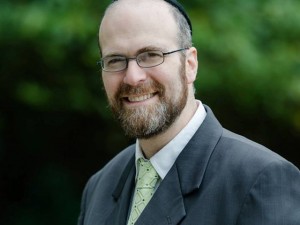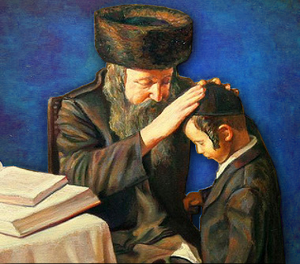
This week, the world of Kiruv, Jewish outreach, lost a true hero. On the way to the conference of the Association for Jewish Outreach Professionals, the car in which Rav Dovid Winiarz zt”l was travelling slid on a patch of black ice, and he died in the accident.
Reb Dovid was a person who believed in the ideal of leaving no one behind, and who lived for that ideal.
He used social media as his vehicle of choice, even adopting the moniker “the Facebuker Rebbe” for his activities. And like any Rebbe, he was there for any Jew with words of advice and inspiration.
He epitomized what outreach is really all about: Ahavas Chinam, love for every person regardless of circumstances. Helping a Jewish person discover the majesty of our Jewish heritage isn’t about saving souls; it’s another aspect of the concern for others we are supposed to demonstrate in all circumstances. Dovid was concerned for others, in every way.
You saw it in the way he did business. He was an agent for Fidelity Payment Services, a popular provider of merchant transaction processing. You saw exactly the same caring person helping his clients as you did in his outreach. The CEO of Fidelity, Benyamin Weiser, mentioned to me that R’ Dovid had a uniquely soft approach in both sales and service, which he attributed to his outreach work, but I feel was simply the essence of who Dovid Winiarz was.
Someone wrote on Facebook that he wanted to hear from R’ Dovid’s close friends about doing something in his memory. I sent that person a note, telling him that he’s going to receive a lot of messages (as I’m sure he did) because everyone felt he was R’ Dovid’s close friend. His enthusiasm was infectious, he was always trying to get more people involved in spreading Judaism, and simply helping others in whatever situation. In just days, hundreds of people have joined the tribute page set up on Facebook in his memory, with countless stories of what he personally did to help so many. One person commented that everyone knew R’ Dovid was a Tzaddik, a truly righteous person. What was hidden about his holiness is that no one knew the superhuman amount that he did for so many people.
As I wrote earlier this week, if we are to learn from R’ Dovid, it would have to be first and foremost his attribute of Ahavas Chinam, free and boundless love for others, that we emulate. Spreading knowledge of our great legacy should be merely one facet of that desire to help.
Rav Dovid Winiarz is survived by his wife and ten children; a fund has been established to help the family.

